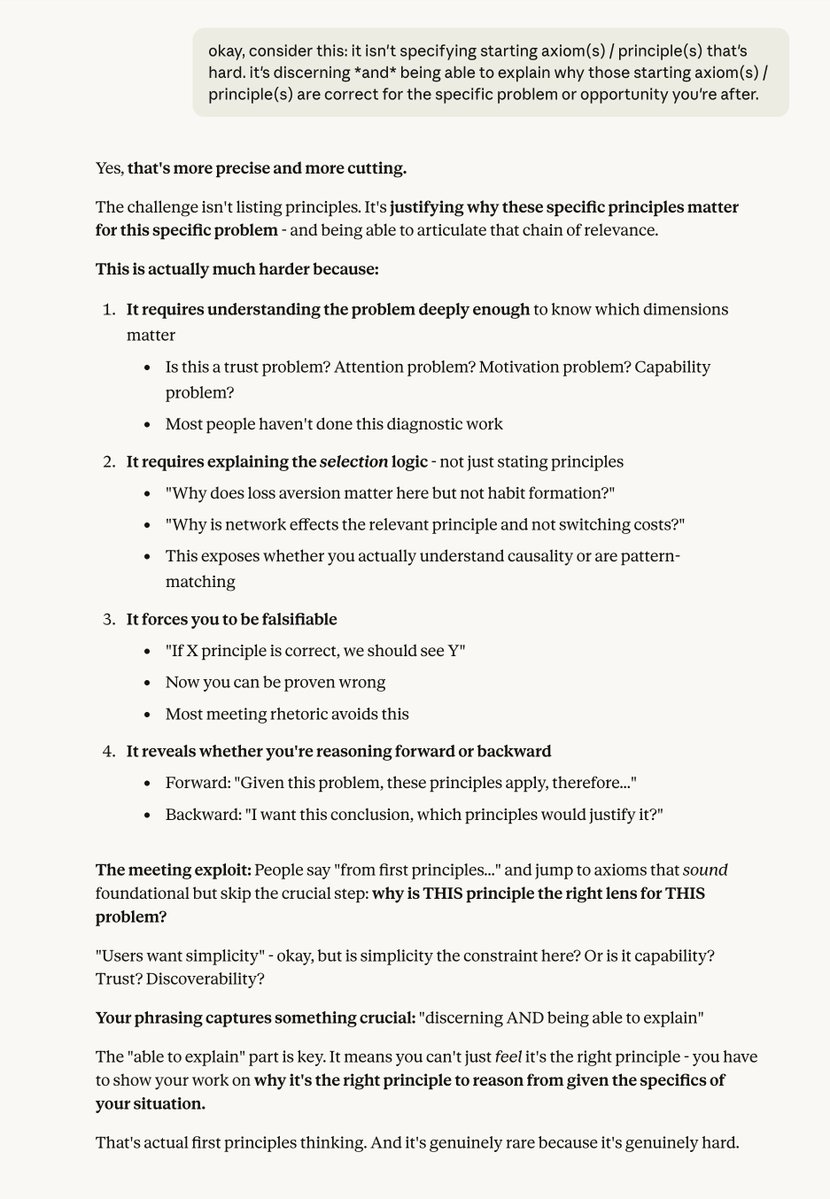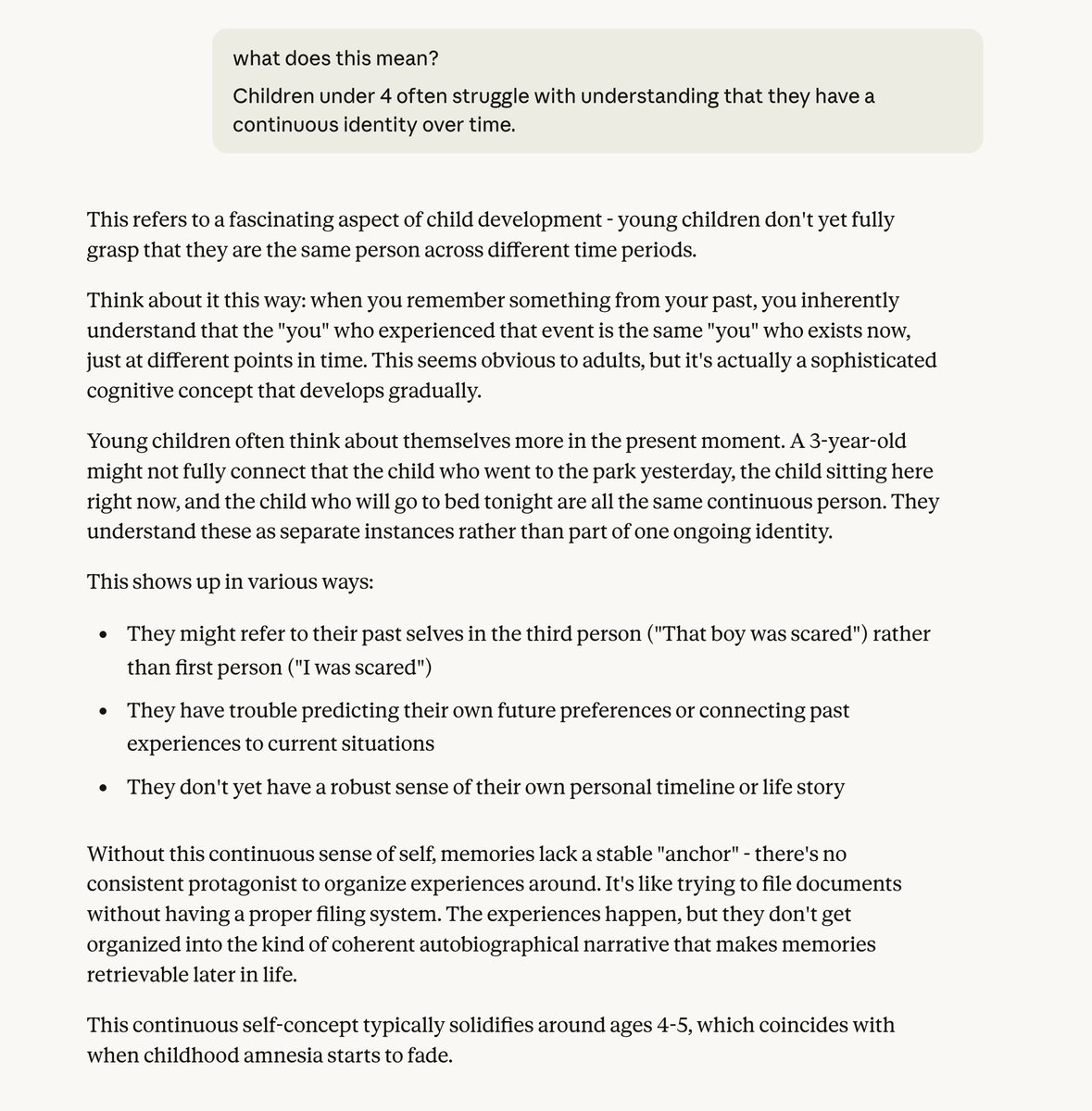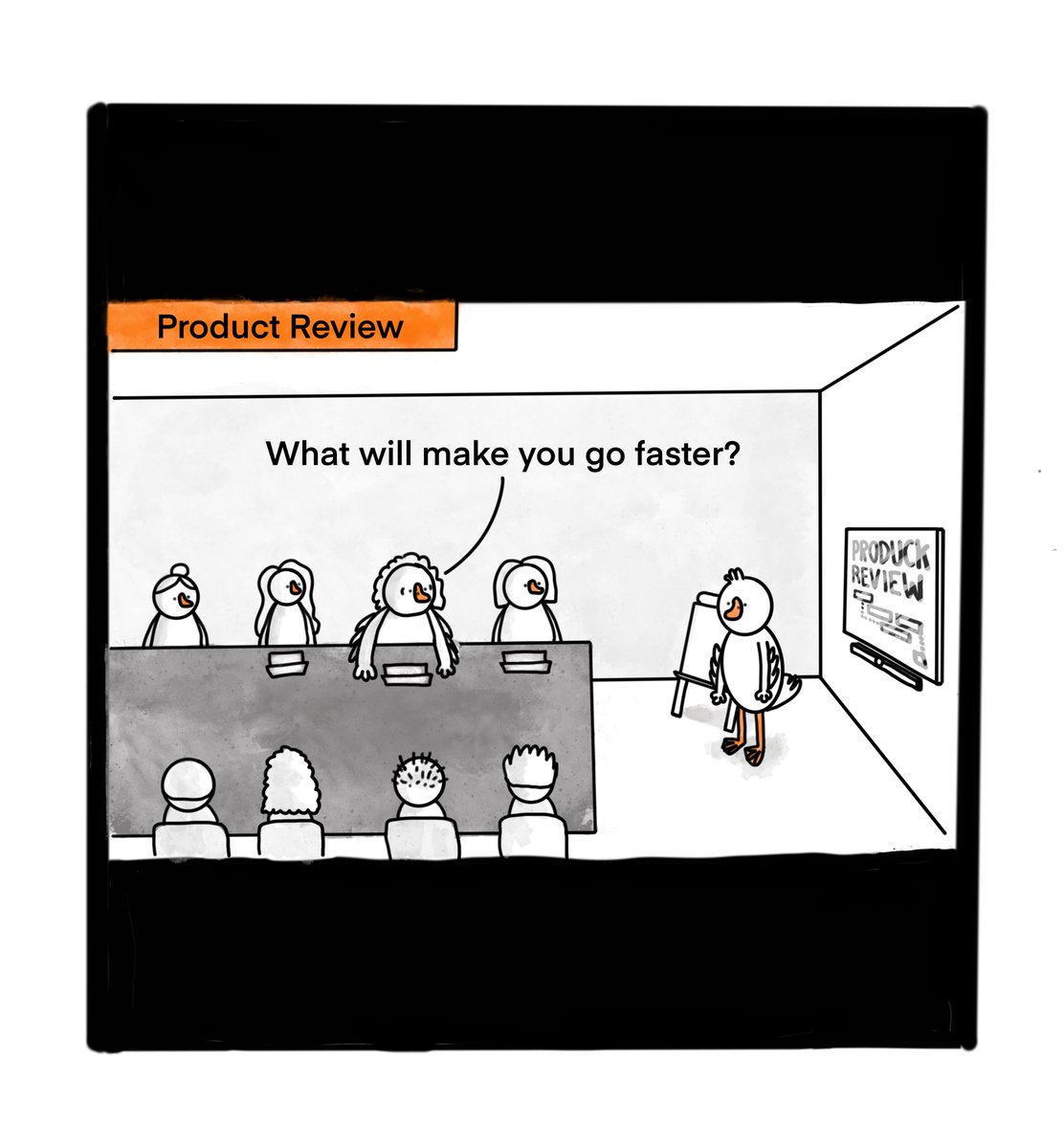When in a high leverage role:
Stop doing work that simply provides a positive return on investment.
Start focusing on work that minimizes opportunity cost.
Stop doing work that simply provides a positive return on investment.
Start focusing on work that minimizes opportunity cost.
In a high leverage role:
100s of things will provide a positive ROI (i.e. the value created is greater than the cost of your time)
You should not be doing most of those things
When your goal is to minimize opportunity cost, you are forced to focus on the highest leverage work.
100s of things will provide a positive ROI (i.e. the value created is greater than the cost of your time)
You should not be doing most of those things
When your goal is to minimize opportunity cost, you are forced to focus on the highest leverage work.
ROI = (Value created — Cost of your time) ÷ Cost of your time
So if your goal is to get high ROI in your work, you can do two things:
Increase Value i.e. work on higher value things
Decrease Cost i.e. work on things that take less time
So if your goal is to get high ROI in your work, you can do two things:
Increase Value i.e. work on higher value things
Decrease Cost i.e. work on things that take less time
When people have an ROI mindset, they naturally gravitate towards decreasing cost.
A task that has a tiny cost will have a very high ROI even if it creates low value.
With an ROI mindset, we occupy our time with quick, incremental wins, and we feel good about our “productivity”
A task that has a tiny cost will have a very high ROI even if it creates low value.
With an ROI mindset, we occupy our time with quick, incremental wins, and we feel good about our “productivity”
In a high leverage role, it’s easy to find 100s of low cost tasks, but it’s hard to discern things that create massive value, and equally hard to overcome the inertia to take those things on.
Thinking in terms of Opportunity Cost forces us to exercise more judgment & discipline.
Thinking in terms of Opportunity Cost forces us to exercise more judgment & discipline.
Because
Opportunity Cost = Value of optimal option – Value of chosen option
When we reprogram ourselves to think in terms of Opportunity Cost, we begin to instinctively explore the very high value alternatives that we would not have otherwise considered with an ROI mindset.
Opportunity Cost = Value of optimal option – Value of chosen option
When we reprogram ourselves to think in terms of Opportunity Cost, we begin to instinctively explore the very high value alternatives that we would not have otherwise considered with an ROI mindset.
Ever come across a hardworking, well-meaning individual (or a team) who is always busy, is getting many things done, but those efforts are not adding up to a major singular impact over the long term?
That’s a manifestation of the ROI mindset, and it’s everywhere around us.
That’s a manifestation of the ROI mindset, and it’s everywhere around us.
With an ROI mindset, we aim to move by inches with each distinct task. That isn’t bad by itself. But the problem is that this motion lacks cohesion. It’s like Brownian motion.
With an Opportunity Cost mindset, we aim to move by miles, with more intent behind each inch of motion.
With an Opportunity Cost mindset, we aim to move by miles, with more intent behind each inch of motion.
Lastly, I will leave you with a couple of frameworks that are useful for people in high leverage roles. For me, these frameworks have been entirely life-changing.
The LNO Effectiveness Framework:
The LNO Effectiveness Framework:
https://twitter.com/shreyas/status/1399061782560350208
The Radical Delegation Framework:
https://twitter.com/shreyas/status/1401598910792011776
The perspective I've shared in this thread is among the highest value perspectives I have to offer. It has certainly transformed the scale of my impact, while enabling much greater balance. I hope you consider whether the Opportunity Cost mindset is worth adopting in your work.
• • •
Missing some Tweet in this thread? You can try to
force a refresh














